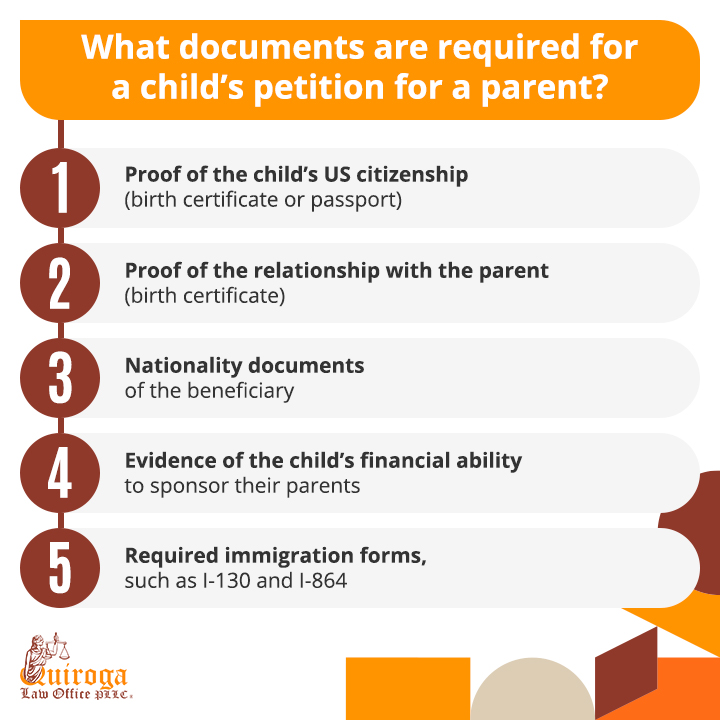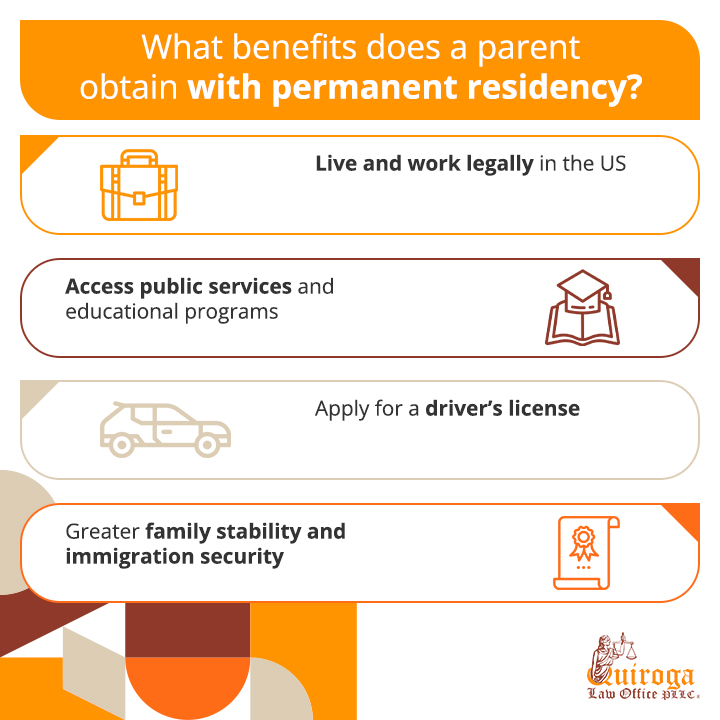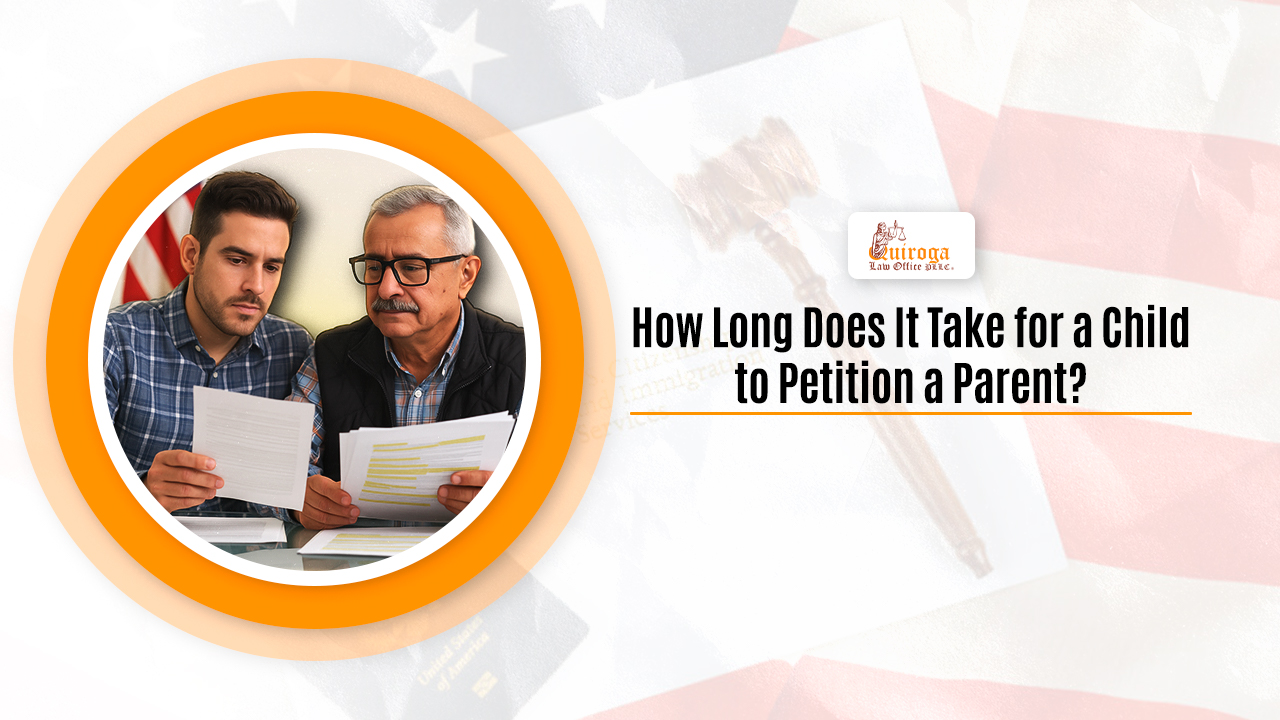Find out the answer to how long does it take for a child to petition a parent and what factors influence this process. Learn everything here and start your case today.
Many citizens wonder: how long does it take for a US citizen child to petition a father? Or a mother?
The answer is not unique. It depends on the parent’s immigration status and whether they live inside or outside the US. In addition, the workload of immigration offices also plays a role.
The process can be completed in a few months or extend for several years, so it is crucial to understand the factors that affect it before beginning.
How Long Does It Take for a Child to Petition a Parent at USCIS?
How long a family petition takes is one of the most common questions. Although there are reference times, each case moves at its own pace.
In general, a family petition may take anywhere from 5 months to more than 10 years. Everything depends on the family category, the office handling the case, and any possible legal obstacles along the way.
Differences between processing centers
The waiting time can vary depending on the USCIS service center. For example, the Nebraska Service Center usually processes petitions in 5 to 7 months. In Texas, the timelines can range from 17 to 23 months.
This difference shows why two families with similar cases may face very different approval times.
If you are considering starting your case, the best recommendation is to regularly check the official USCIS tool to know the approximate timelines.
What affects the processing time of a child’s petition for a parent?
The duration of this process depends on multiple factors that USCIS evaluates case by case.
Immigration status of the parent
If the parent entered the US legally, it is usually possible to adjust status more quickly. But if they entered without a visa or overstayed, the wait can exceed 10 years. This is especially true if a waiver is required.
Place of residence
- Inside the US. The case may be resolved through adjustment of status.
- Outside the US. A consular process is required, which includes additional steps.
Additional factors
Other elements that influence time include:
- The number of petitions at USCIS.
- The need to comply with unlawful presence bars.
- Issues of inadmissibility that may require additional procedures.
What happens if the parent lives in the US?
When the parent is in the country and entered with a valid visa, the petition is usually resolved faster through adjustment of status.
If they remain without authorization, the process may take more than 10 years. This may include leaving the country and requesting a special waiver to avoid penalties.
These scenarios show why it is essential to analyze each case before filing the petition to avoid delays that may affect the whole family.
What happens if the parent lives outside the US?
When the parent lives in another country, the petition requires a consular process.
Main steps of the consular process
- Approval of the I-130 petition by USCIS.
- Transfer of the case to the National Visa Center (NVC).
- Submission of required documents and payment of fees.
- Mandatory medical exam.
- Consular interview at the corresponding Embassy or Consulate.
After approval, the parent receives an immigrant visa and has 6 months to enter the US. Once in the country, the stamp in the passport works as a temporary Green Card until the physical card arrives.
How long is an approved I-130 valid?
An important point to understand is that an approved I-130 petition does not have a fixed expiration date. As long as the family relationship continues and the petitioner remains a US citizen or permanent resident, the petition stays valid.
However, there are some cases in which a family petition may lose its validity, such as:
- Voluntary withdrawal of the petition by the US citizen child.
- Inactivity in the consular process for more than one year.
- Death of the beneficiary (father or mother).
- Cases of immigration inadmissibility.
In exceptional circumstances, the beneficiary may request humanitarian reinstatement, which highlights the importance of acting with proper legal guidance.
What documents are required for a child’s petition for a parent?
The main requirements include:
- Proof of the child’s US citizenship (birth certificate or passport).
- Proof of the relationship with the parent (birth certificate).
- Nationality documents of the beneficiary.
- Evidence of the child’s financial ability to sponsor their parents.
- Required immigration forms, such as I-130 and I-864.
Having these documents ready from the beginning helps reduce unnecessary delays.

What benefits does a parent obtain with permanent residency?
Parents who receive a Green Card gain important rights:
- Live and work legally in the US.
- Access public services and educational programs.
- Apply for a driver’s license.
- Greater family stability and immigration security.
Beyond the legal benefits, permanent residency represents the peace of mind of being with family without fear of deportation.

What you should keep in mind before starting your petition
The time it takes for a US citizen child to petition a parent can range from a few months to several years. Factors such as the parent’s current residence, immigration status, and USCIS workload directly affect the processing time.
For this reason, it is best to start the process as early as possible and confirm the eligibility of your case. With the right information, you can reduce risks and move forward more securely toward family reunification.



